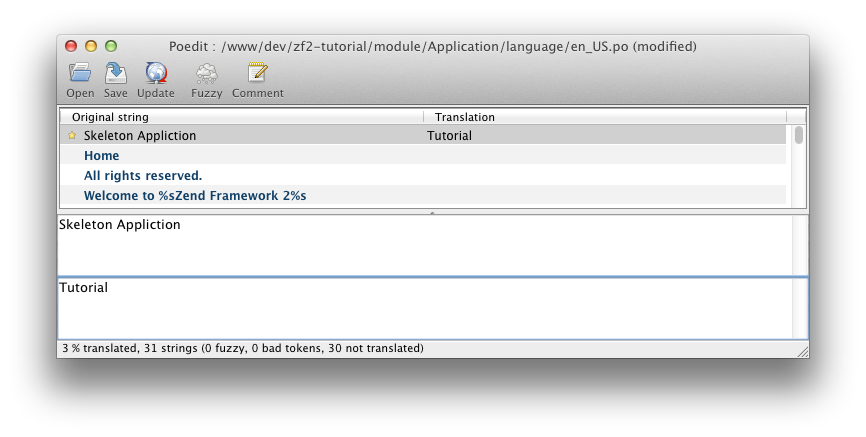



Sometimes, the very same entry could show two, or more times. There is also a handy "Find." option, where we can look for specific entries to translate, or correct. If we prefer the back-end in the original language, we can skip those entries. When we translate WordPress plugins, we don't translate just the front-end, but the back-end as well. Those have two tabs so we can enter the respective translations.

Some entries will have a different singular and plural form. If we find any HTML tags or PHP code, such as. We make sure to translate each entry exactly as it is, including the punctuation. but we can always add something to the dictionary, in case it's right and just not recognized. Poedit also features an automatic spell checking option as we type.
#ONLINE POEDIT UPGRADE#
To get unlimited suggestions, we need to upgrade to Poedit Pro, for 20$, which is probably not worth if we only want to translate one or two plugins. Unfortunately, the online suggestions are limited to 10 every time we start the program. This can speed up the translation process considerably. By pressing Ctrl+Enter, we submit the translation and move to the next one in line.ĭepending on the language, Poedit will offer popular translation options, which we can quickly add with ctrl+1, ctrl+2, etc. We won't need to take our hands off the keyboard to click on the next source to translate. More complex plugins can very well have thousands of lines. Simple as it is, the plugin of the example has more lines to translate than the year has days. We just select the source text and type the translation. Translating WordPress plugins with Poedit is easy. and select the proper language we will translate the particular po file. We also make sure that the "Automatically compile MO file when saving" option is checked. and fill in our information as a translator. After examining it, rename it to the original file name ( ccpublisher.po).First thing we do, we go to File -> Preferences This will create a new file ( new_ccpublisher.po) containing the merged translations. For example, to use msgmerge for ccpublisher.po, you can use the following commands (Linux): $ cd resources/locale/en_US The GNU gettext tools include a command-line tool called msgmerge which may be used to merge two catalogs together. PoEdit will display the new strings it will add, as well as the obsolete strings it will remove. if you are updating ccpublisher.po, select ccpublisher.pot). pot file which cooresponds to the translation you have open (i.e.
#ONLINE POEDIT UPDATE#
Go to the Catalog menu and select Update from POT file. If you are using poEdit, you can use the Update from POT file. At those times it is necessary to update the translation (.po) files with the new strings and translations. Strings are sometimes added or removed from the application during development cycles. Once you have completed or updated a translation and tested it, you can submit it by emailing the cc-devel mailing list. mo file in the same time you pressing Save. Just use poEdit's File -> New catalog from POT file. The poEdit team reports it is a beta release and the 1.3.6 version is known to be broken, but some translators have had success using it for ccPublisher.
#ONLINE POEDIT WINDOWS#
Official releases are available from the poEdit web site for Windows and Linux. It aims to provide more convenient approach to editing catalogs than launching Notepad (or vi) and editing the file by hand. It is built with wxWidgets toolkit and can run on any platform supported by it. PoEdit is an Open Source cross-platform gettext catalogs (.po files) editor. If you have questions about where to find the templates for a specific project, email the cc-devel mailing list. These are typically stored in Subversion in a template locale directory. To begin translating a Creative Commons application, you will need the PO Template (.pot) file(s).


 0 kommentar(er)
0 kommentar(er)
